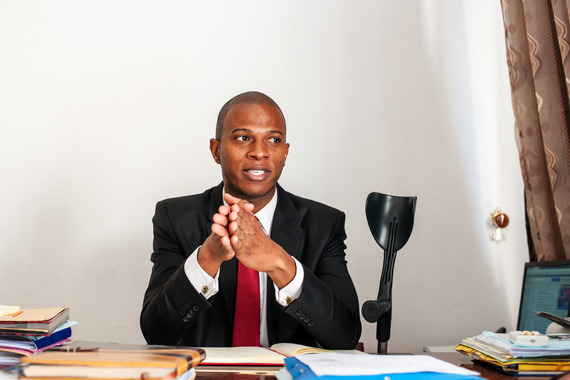“Every day we are reminded that, for everybody, work is a defining feature of human existence. It is the means of sustaining life and of meeting basic needs. But it is also the activity through which individuals affirm their own identity, both to themselves and to those around them. It is crucial to individual choice, to the welfare of families and to the stability of societies.”
This statement from Juan Somavia, former Director-General of the International Labour Organisation (ILO), reminds us how essential access to employment is, all over the world. Not only for everyone to be able to live with dignity but also for societies to be enriched and have stronger economies.
Unfortunately, many of the world’s one billion disabled people see their fundamental right to decent work denied. According to the ILO, fewer than 20% of them are working.
Despite being some of the poorest of the poor, disabled people living in situations of poverty and exclusion, are too often left behind and struggle to access employment.
One of the biggest obstacles facing people with disabilities in the workplace is prejudice. Many employers are convinced that people with disabilities lack skills and are unable to bring anything to the company. To combat this discrimination, Handicap International is helping people with disabilities find work through personalised support, training and advocacy work with businesses.
And we are witnessing some concrete and positive changes. As Handicap International’s and Leonard Cheshire Disability’s (LCD) new white paper “Good for Business” explains, partnerships between businesses and NGOs are becoming more frequent as multinational companies stretch into new low and middle-income markets. Together, we’re collaborating to successfully recruit, hire and retain people with disabilities.
This collaboration with businesses enables us to help people with disabilities successfully enter the world of work and see their fundamental right respected.
People like Boubacar, 33. Boubacar had polio as a child and now needs crutches to walk. For many years, his disability made it difficult for him to find a job. He shared with us the injustice he’s had to face: “I wrote to a major international organisation. They offered me an internship. But after we met for an interview and they saw I was disabled, I didn’t hear from them again.”
Boubacar E. Fitte-Duval / Handicap International
Thanks to our support, Boubacar now works as a legal adviser at the Ministry for African Integration, NEPAD and Good Governance. Our teams provided him with occupational support to overcome obstacles arising from his motor disability. We highlighted his skills and made the Ministry for Public Services aware of the need to include people with disabilities in their teams.
Thanks to all this advocacy, businesses are starting to realise that including people with disabilities means enjoying competitive advantages, increasing the number of available workers, increasing workplace diversity, and making strong contributions to their national GDP.
Hopefully, increased access to meaningful, waged labour will help reduce the unjust statistic that less than 20% of people with disabilities are working worldwide.
About the white paper:
Handicap International’s and Leonard Cheshire Disability’s (LCD) new white paper “Good for Business: Promoting Partnerships to Employ People with Disabilities“, offers six steps for companies to follow to ensure they’re ready to welcome more colleagues with disability.
The new paper builds off of information provided in Handicap International’s 2016 white paper, Situation of Wage Employment of People with Disabilities: Ten Developing Countries in Focus.
Good for Business has been shared at the second annual Harkin Summit on International Disability Employment. This year’s Summit gathers 255 people from 40 countries to discuss ways to accelerate paths to employment for people with disabilities
